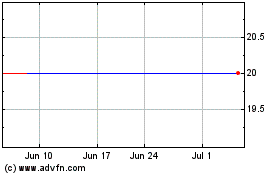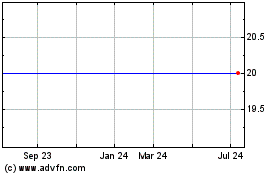Cardiovascular Systems Receives Conditional IDE Approval for ORBIT II Coronary Clinical Trial
January 14 2010 - 8:00AM
Business Wire
Cardiovascular Systems, Inc. (CSI) (Nasdaq:CSII), has received
Food and Drug Administration (FDA) conditional Investigational
Device Exemption (IDE) approval to evaluate the safety and
effectiveness of its Diamondback 360® System in the treatment of
calcified coronary lesions. With this conditional approval, CSI is
authorized to begin its pivotal trial, ORBIT II, in early 2010 and
initially enroll up to 100 patients at as many as 50 U.S. sites.
Dr. Jeffrey Chambers, an interventional cardiologist with
Metropolitan Cardiovascular Consultants, Minneapolis, is the
principal investigator for ORBIT II. The Diamondback 360° is a
minimally invasive catheter, which received FDA 510(k) marketing
clearance in 2007 for the treatment of peripheral arterial
disease.
“The U.S. market for coronary interventions is currently
estimated at more than $4 billion, representing 1.3 million
procedures each year,” said David L. Martin, president and CEO of
Cardiovascular Systems. “A complementary tool to stents and
angioplasty, we expect our Diamondback 360° to play a significant
role in this market by removing the calcified or fibrocalcific
disease to increase the effectiveness of the other therapies. We
are optimistic that the success of the Diamondback 360° in treating
peripheral arterial disease — as confirmed in our landmark OASIS
study and in more than 20,000 patients to date — can be repeated in
the treatment of coronary disease.”
In 2008, CSI completed the first in-human ORBIT I coronary
trial, a feasibility study which enrolled 50 patients in India. The
Diamondback 360° was shown successful in 98 percent of patients,
and the acute procedural success rate was 94 percent. These results
met the company’s safety and efficacy endpoints and were among the
data the FDA considered in granting conditional IDE approval.
“We have seen the advantages of using the Diamondback 360° in
removing calcified coronary plaque prior to using stents or
angioplasty,” said Dr. Chambers. “In the feasibility study, acute
procedural outcomes were positive, and we believe the use of the
device also may contribute to improved long-term outcomes in
patients with difficult-to-treat disease. We look forward to
expanding our understanding of this platform technology for a
coronary indication.”
The Diamondback 360° catheter has a diamond-coated crown and
unique orbital mechanism of action, ideally suited for removing
calcific and fibrocalcific plaque. The coronary platform has been
designed for ease-of-use, short procedure times and a minimized
risk of complications by using a low-profile catheter, a
turbine-powered controller and the proprietary ViperWire™ Guide
Wire.
CSI received FDA 510(k) marketing clearance for the Diamondback
360° as a PAD therapy on the basis of data from its OASIS study,
the first-ever prospective study evaluating a plaque removal
system, which enrolled 124 patients at 20 sites. Acute outcomes
demonstrated that the Diamondback 360° device is safe and
effective. Six-month results showed no major amputations, and 97.5
percent of patients required no reintervention. Recently announced
follow up on 64 patients demonstrated the long-term durability of
treatment with the Diamondback 360°, with a 100-percent limb
salvage rate maintained and freedom from reintervention in 86.4
percent of patients after two years.
Safe Harbor
Certain statements in this news release are forward-looking
statements within the meaning of the Private Securities Litigation
Reform Act of 1995 and are intended to enjoy the protection of the
safe harbor for forward-looking statements provided by that Act.
For example, statements in this press release regarding (i) CSI’s
ability to play a significant role in the market for coronary
interventions; (ii) the anticipated improvement in outcomes,
especially in patients with calcified or fibrocalcific disease with
the Diamondback 360°; and (iii) repeating CSI’s success in treating
PAD in treatment of coronary disease are forward looking
statements. These statements involve risks and uncertainties which
could cause results to differ materially from those projected,
including but not limited to the potential for unanticipated delays
in enrolling medical centers and patients for studies; new data or
events that may disrupt plans for these studies; unexpected results
or clinical outcomes in the ORBIT II trial and other factors
detailed from time to time in CSI’s SEC reports, including its most
recent annual report on Form 10-K. CSI encourages you to consider
all of these risks, uncertainties and other factors carefully in
evaluating the forward-looking statements contained in this
release. As a result of these matters, changes in facts,
assumptions not being realized or other circumstances, CSI's actual
results may differ materially from the expected results discussed
in the forward-looking statements contained in this release. The
forward-looking statements made in this release are made only as of
the date of this release, and CSI undertakes no obligation to
update them to reflect subsequent events or circumstances.
About Cardiovascular Systems, Inc.
Cardiovascular Systems Inc., (CSI) (Nasdaq: CSII) based in St.
Paul, Minn., is a medical device company focused on providing
clinically proven, safe and effective solutions for vascular
disease. The company’s Diamondback 360® PAD System removes
calcified and fibrotic plaque in small and large peripheral
vessels, and addresses many of the limitations associated with
existing surgical, catheter and pharmacological treatment
alternatives. In August 2007, the U.S. FDA granted 510(k) clearance
for the use of the Diamondback 360° as a therapy for PAD
(peripheral arterial disease), and CSI commenced a U.S. product
launch in September 2007. Since then, more than 20,000 procedures
have been performed using the system. For more information visit
the company’s Web site at www.csi360.com.
Product Disclosure
The Diamondback 360® PAD System is a percutaneous orbital
atherectomy system indicated for use as therapy in patients with
occlusive atherosclerotic disease in peripheral arteries and
stenotic material from artificial arteriovenous dialysis fistulae.
The system is contraindicated for use in coronary arteries, bypass
grafts, stents or where thrombus or dissections are present.
Although the incidence of adverse events is rare, potential events
that can occur with atherectomy include: pain, hypotension,
CVA/TIA, death, dissection, perforation, distal embolization,
thrombus formation, hematuria, abrupt or acute vessel closure, or
arterial spasm.
Cardiovascular Systems (NASDAQ:CSII)
Historical Stock Chart
From Jun 2024 to Jul 2024

Cardiovascular Systems (NASDAQ:CSII)
Historical Stock Chart
From Jul 2023 to Jul 2024
